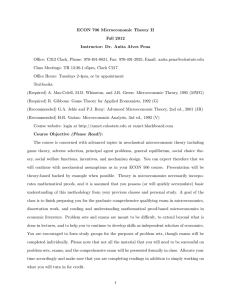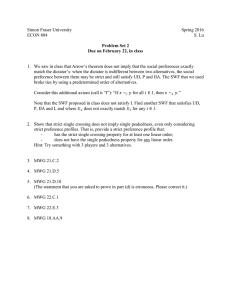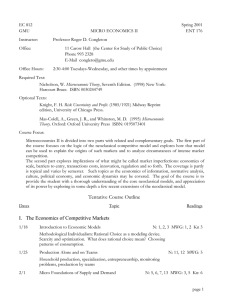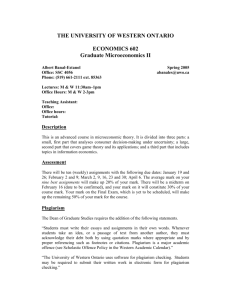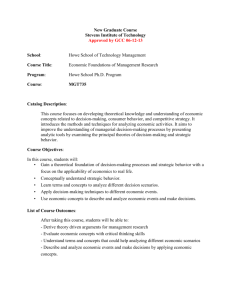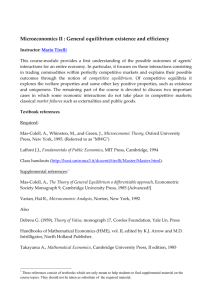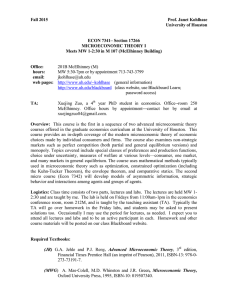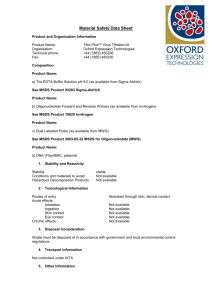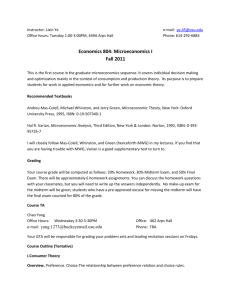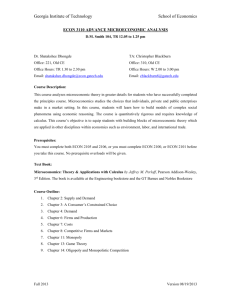Spring 2016 Lectures: M 10:30-12:20, W 10:30-11:20 in WMC 3611
advertisement
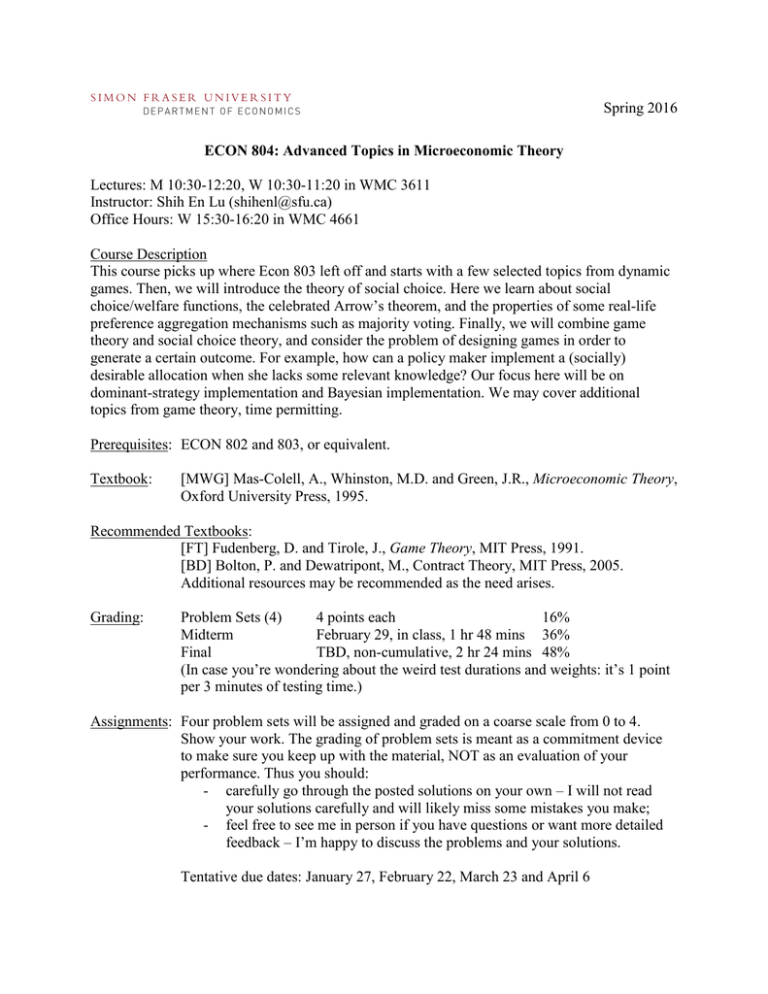
Spring 2016 ECON 804: Advanced Topics in Microeconomic Theory Lectures: M 10:30-12:20, W 10:30-11:20 in WMC 3611 Instructor: Shih En Lu (shihenl@sfu.ca) Office Hours: W 15:30-16:20 in WMC 4661 Course Description This course picks up where Econ 803 left off and starts with a few selected topics from dynamic games. Then, we will introduce the theory of social choice. Here we learn about social choice/welfare functions, the celebrated Arrow’s theorem, and the properties of some real-life preference aggregation mechanisms such as majority voting. Finally, we will combine game theory and social choice theory, and consider the problem of designing games in order to generate a certain outcome. For example, how can a policy maker implement a (socially) desirable allocation when she lacks some relevant knowledge? Our focus here will be on dominant-strategy implementation and Bayesian implementation. We may cover additional topics from game theory, time permitting. Prerequisites: ECON 802 and 803, or equivalent. Textbook: [MWG] Mas-Colell, A., Whinston, M.D. and Green, J.R., Microeconomic Theory, Oxford University Press, 1995. Recommended Textbooks: [FT] Fudenberg, D. and Tirole, J., Game Theory, MIT Press, 1991. [BD] Bolton, P. and Dewatripont, M., Contract Theory, MIT Press, 2005. Additional resources may be recommended as the need arises. Grading: Problem Sets (4) 4 points each 16% Midterm February 29, in class, 1 hr 48 mins 36% Final TBD, non-cumulative, 2 hr 24 mins 48% (In case you’re wondering about the weird test durations and weights: it’s 1 point per 3 minutes of testing time.) Assignments: Four problem sets will be assigned and graded on a coarse scale from 0 to 4. Show your work. The grading of problem sets is meant as a commitment device to make sure you keep up with the material, NOT as an evaluation of your performance. Thus you should: - carefully go through the posted solutions on your own – I will not read your solutions carefully and will likely miss some mistakes you make; - feel free to see me in person if you have questions or want more detailed feedback – I’m happy to discuss the problems and your solutions. Tentative due dates: January 27, February 22, March 23 and April 6 Tentative Outline Jan 6-18 (weeks 1-2) Dynamic Games: One-Stage Deviation Principle, Folk Theorem (MWG 12.AA; FT 4.1-4.3, 5.1) Markov Perfect Equilibrium (FT 13.1, 13.2) Jan 20-Feb 17 (weeks 3-6) Social Choice and Cooperative Games (MWG 21, 22 and 18.AA) Feb 8-12 Reading Week Feb 29 Midterm on Material through Cooperative Games Feb 22-Mar 16 (weeks 6-9) Mechanism Design (MWG 23) Mar 21-Apr 4 (weeks 10-11) Hidden Information (MWG 14.C, BD 2) Hidden Action (MWG 14.B, BD 4) Apr 6-11 (week 12) Miscellaneous Topics, Catch-Up and/or Review
